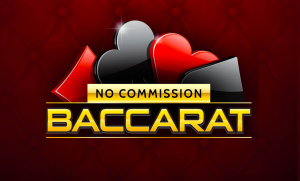
For any young artist to make it in the mainstream music business can be hard and challenging, especially if they choose to go the independent route or if they are not signed to any major record label. Since there are a lot of brilliant performers today, in order to be heard above the rest, it is vital to formulate a plan or strategy that targets the specific audience that the performer seeks to reach and create or enhance their existing fan base. This article provides five pragmatic suggestions that would help novice performers thrive in the modern mainstream market.
1. Develop a Unique Brand Identity
A distinctive business recognizes is the key to market differentiation in a saturated marketplace. This includes giving your music an artistic concept, sound, as well as image that sets you apart. Artists should ask themselves vital questions such as what makes them unique from the rest of the musicians in the market. Employ a distinct visual theme, logos, and a single theme throughout social sites, music videos, and merchandising. Brand identity helps listeners retain information, and industry professionals quickly recognize a familiar brand or business. Brand consistency helps your audience identify you and your work since your presentation will have a standard look and feel.
2. Leverage Social Media and Digital Platforms
Reaching out to more people through social media and the various digital platforms proves handy. Digital platforms artists can use include Instagram, TikTok, YouTube, and Spotify when posting their music and connecting with fans. Whatever strategy you choose, consistency is key: create content frequently, engage with fans, and sometimes show them exclusive content to keep them hooked. Educational content creation, like the music challenges seen on TikTok or video tutorials like those on YouTube, also increases visibility. Working with other influencers and artists, one can reach their audience and promote your music which can attract followers but also make way for other professionals in the industry to stumble upon it.
3. Perform Live and Build a Local Following
Concerts may be one of the most efficient means of captivating the audience and making them subscribe to your art. Some of the tips that should be followed include performing at clubs, cafes, bars, and open stage shows. To begin with, virtuoso performances excite fans to interact directly with artists, hence creating good impressions that popularize performances. One of the ways you can make yourself relevant is to be a part of your local music scene. Help other musicians and work together on projects; this could lead, for instance, to offers for a festival or playing beforehand for another musician.
4. Explore Sync Placement Opportunities
Opportunities such as music licensing should be considered as one of the ways of increasing reach. Selling your music for license in films, TV, radio & TV commercials, or video games gets you access to audiences you might not ordinarily come across. Above all, sync placements are another way to earn money for your work and gain recognition among professionals. To operate within this avenue effectively, consider seeking professional assistance from a sync agent, who can help you secure the right licenses. With this sort of partnership, you can easily boost your opportunities at having a song played on media outlets that are considered influential, which in return will increase the number of people you are able to attract.
5. Network and Collaborate with Industry Professionals
An independent artist cannot afford to enter the mainstream scene without networking. Musicians, producers, and even other professionals often offer the best chances of collaboration time or advice for progression. Go to conferences, festivals and workshops where one is likely to meet the major players in this industry. Facebook or Linked In as well as music-related forums are also beneficial for connecting with others. Many of these market stakeholders can act as a guide to where your music can be listened to or where producers to look for new talent. This means working with actual like-minded artists and can expand your potential market and increase your credibility.
Conclusion
Getting to the big league in the mainstream music industry requires strategy, innovation, and patience. It is always important for emerging artists to cut out an individual niche within the market, increase their presence in social networks, go on live performances, look for opportunities to file music, and finally, work with other people from a similar field. Adherence to the following tips will create a firm foundation to give the much-needed footing for a long-lasting and rewarding music business.



